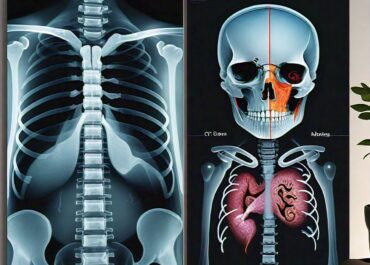
Differences Between Hypo Goiter and Hyper Goiter
Goiters refer to an abnormal enlargement of the thyroid gland, located at the base of the neck. The thyroid gland plays a crucial role in regulating the body’s metabolism by producing hormones such as thyroxine (T4) and triiodothyronine (T3). Hypo goiter and hyper goiter represent two distinct thyroid conditions where the gland enlarges due to different underlying issues. While both can lead to noticeable swelling in the neck, they stem from opposite thyroid hormone activity levels, leading to differing symptoms and consequences for the body’s metabolism.
In hypo goiter, the thyroid gland is underactive, producing insufficient amounts of thyroid hormones, which leads to a slowed metabolic rate. On the other hand, hyper goiter occurs when the thyroid gland becomes overactive, producing excessive thyroid hormones, resulting in an accelerated metabolic rate. These conditions, though both connected to goiter, have contrasting effects on the body and require different approaches for diagnosis and treatment.
Hypo Goiter Overview
1. Causes of Hypo Goiter
Hypo goiter primarily occurs due to an underproduction of thyroid hormones, often as a result of iodine deficiency. Iodine is essential for thyroid hormone production, and a lack of it can lead to swelling of the thyroid as it tries to compensate for the deficit. Another common cause is Hashimoto’s thyroiditis, an autoimmune disorder where the immune system mistakenly attacks the thyroid gland, impairing its ability to produce hormones. Other contributing factors include genetic predisposition, radiation therapy to the neck, or surgery that removes part of the thyroid.
2. Symptoms of Hypo Goiter
The symptoms of hypo goiter develop gradually and are often subtle, making the condition difficult to detect initially. The most common signs include fatigue, weight gain, cold intolerance, dry skin, constipation, and depression. As the thyroid gland swells, there may be a visible lump at the base of the neck, accompanied by hoarseness, difficulty swallowing, or breathing issues due to the compression of nearby structures. Over time, untreated hypo goiter can lead to more serious conditions such as heart problems, infertility, or in severe cases, myxedema coma.
3. Diagnosis of Hypo Goiter
Diagnosis begins with a physical examination to detect any enlargement of the thyroid. Blood tests are typically conducted to measure levels of thyroid hormones (T3 and T4) and thyroid-stimulating hormone (TSH), which is produced by the pituitary gland. In hypo goiter, TSH levels are elevated as the pituitary tries to stimulate the thyroid to produce more hormones, while T3 and T4 levels are low. Ultrasound imaging of the thyroid may also be performed to assess the size of the goiter and check for nodules or other abnormalities.
4. Treatment of Hypo Goiter
Treatment for hypo goiter focuses on addressing the underlying cause and restoring normal thyroid hormone levels. The most common treatment is levothyroxine, a synthetic form of thyroxine (T4) that helps normalize hormone levels. Iodine supplementation may be prescribed if the goiter is caused by iodine deficiency. In more severe cases, such as when the goiter is large and causing significant discomfort or breathing difficulties, surgery to remove part or all of the thyroid gland may be recommended. Lifelong thyroid hormone replacement therapy is often required after surgery.
5. Complications of Hypo Goiter
If left untreated, hypo goiter can lead to a range of complications. The most concerning is myxedema coma, a rare but life-threatening condition characterized by extreme hypothyroidism, resulting in low body temperature, confusion, and slowed breathing. Chronic hypothyroidism can also contribute to heart disease by increasing cholesterol levels and leading to an enlarged heart. In pregnant women, untreated hypo goiter can result in miscarriage, premature birth, or developmental issues in the baby. Regular monitoring and treatment can prevent most of these complications.
Hyper Goiter Overview
1. Causes of Hyper Goiter
Hyper goiter is primarily caused by conditions that lead to an overproduction of thyroid hormones. The most common cause is Graves’ disease, an autoimmune disorder where antibodies stimulate the thyroid to produce excessive amounts of hormones. Other causes include toxic multinodular goiter, where multiple nodules in the thyroid gland become overactive, and thyroiditis, an inflammation of the thyroid that results in the release of stored thyroid hormones. In rare cases, it may also be caused by a thyroid adenoma, a benign tumor in the thyroid gland.
2. Symptoms of Hyper Goiter
Hyper goiter is characterized by symptoms of hyperthyroidism, including weight loss despite an increased appetite, rapid or irregular heartbeat, anxiety, tremors, sweating, and heat intolerance. The goiter itself may cause swelling in the neck, similar to hypo goiter, but the metabolic symptoms are the opposite. People with hyper goiter may also experience exophthalmos, a condition where the eyes bulge out due to inflammation and swelling of the muscles around the eyes, particularly in cases caused by Graves’ disease.
3. Diagnosis of Hyper Goiter
Diagnosing hyper goiter involves both physical examination and laboratory testing. Blood tests will typically reveal high levels of thyroid hormones (T3 and T4) and low levels of TSH, as the pituitary gland reduces its output in response to excessive thyroid hormone levels. Radioactive iodine uptake tests may be used to determine how much iodine the thyroid absorbs, which can help identify the cause of hyperthyroidism. Ultrasound or other imaging techniques may be used to assess the goiter and check for nodules or other abnormalities.
4. Treatment of Hyper Goiter
Treatment for hyper goiter depends on the severity of the condition and the underlying cause. Antithyroid medications such as methimazole or propylthiouracil are commonly used to reduce thyroid hormone production. In some cases, radioactive iodine therapy is employed to shrink the thyroid gland by destroying overactive thyroid cells. Surgery may be necessary if the goiter is large, causing significant discomfort or breathing issues, or if other treatments are ineffective. Beta-blockers may also be prescribed to manage symptoms like rapid heart rate and tremors.
5. Complications of Hyper Goiter
Hyper goiter, if left untreated, can lead to serious health issues. Thyroid storm is a life-threatening condition characterized by a sudden and extreme increase in thyroid hormone levels, causing fever, rapid heart rate, and confusion. Long-term hyperthyroidism can lead to heart complications such as atrial fibrillation and heart failure, as well as osteoporosis due to the body’s increased demand for calcium. Eye problems, especially in cases of Graves’ disease, can worsen if the condition is not properly managed. Early diagnosis and treatment are key to avoiding these complications.
Differences Between Hypo Goiter and Hyper Goiter
- Thyroid Hormone Levels: In hypo goiter, thyroid hormone levels are low, whereas in hyper goiter, they are high.
- Metabolic Rate: Hypo goiter slows the metabolic rate, leading to symptoms like weight gain and fatigue, while hyper goiter accelerates it, causing weight loss and anxiety.
- Energy Levels: People with hypo goiter often feel sluggish and fatigued, while those with hyper goiter tend to feel restless and jittery.
- Heart Rate: Hypo goiter is associated with a slow heart rate, while hyper goiter typically causes a rapid or irregular heart rate.
- Temperature Sensitivity: Hypo goiter sufferers are often cold intolerant, whereas hyper goiter sufferers are heat intolerant.
- Goiter Appearance: Both conditions can cause neck swelling, but the goiter may appear larger in hypo goiter due to the gland’s effort to produce more hormones.
- Skin and Hair: Hypo goiter causes dry skin and hair, while hyper goiter can lead to thinning hair and increased sweating.
- Causes: Hypo goiter is commonly caused by iodine deficiency or Hashimoto’s thyroiditis, while hyper goiter is often due to Graves’ disease or toxic multinodular goiter.
- Treatment: Hypo goiter is treated with thyroid hormone replacement, while hyper goiter is treated with antithyroid medications or radioactive iodine therapy.
- Complications: Untreated hypo goiter can lead to heart disease and myxedema coma, while untreated hyper goiter can cause thyroid storm and heart complications.
Conclusion
Both hypo goiter and hyper goiter are thyroid conditions that involve the enlargement of the thyroid gland but stem from opposing issues in thyroid hormone production. Hypo goiter, characterized by insufficient hormone production, leads to a slow metabolic rate, while hyper goiter, caused by excessive hormone production, results in an accelerated metabolism. Early diagnosis and appropriate treatment are essential to manage these conditions and prevent complications such as heart disease, osteoporosis, and severe thyroid crises. Understanding the differences between these two conditions allows for better management and treatment options for those affected.
FAQs
Related Topics
- All
- Animals
- Diseases
- Health
- Money
- Politics
© 2024 OnYelp.com. All rights reserved. Terms and Conditions | Contact Us | About us





